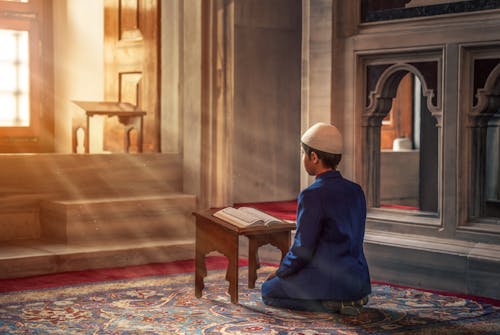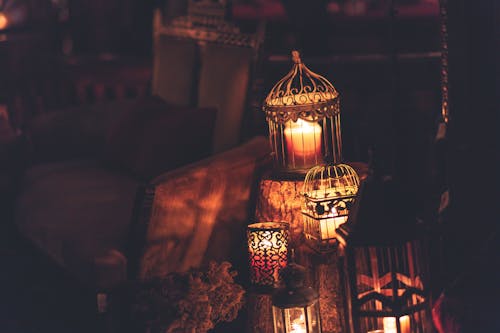Thursday marks the beginning of the holy month of Ramadan for many Muslims. But with many places of worship closed thanks to the coronary artery pandemic, the holiday will be different this year. Here it might be a look at the traditions that will stay in place, and the way others may change.

How was it celebrated?
Ramadan usually begins on the evening of April 23 and ends on May 23. For 30 days, Muslims fast during the day, a practice that is mutually seen among the five pillars of Islam. They will eat before sunrise, and break their fast after dusk on the day. Muslims believe that their holy book was revealed to the Prophet Muhammad during this holy month. In addition to abstaining from food and water, during the month Muslims try to practice "zakat" or charity, one in each of the five pillars of Islam.
The Arabic origin of Ramadan indicates intense heat. Therefore fasting becomes the spiritual process of burning sin with good deeds during the month of Ramadan, two main meals are offered to begin and end during the day. "Suhur" is served and eaten before dawn, and iftar is served after sunset. Usually, these meals are enjoyed in group gatherings between family and friends. Ramadan during the reign of the coronavirus, as well as Islamic holy places, including Makkah and Madinah in Saudi Arabia and the Al-Aqsa Mosque in Jerusalem, will be empty during the month of Ramadan after the authorities advised worshipers to hope for reception. The Islamic Endowments Council in Jerusalem said on Thursday that the Al-Aqsa Mosque compound in Jerusalem - the third holiest place in Islam - will also remain closed during Ramadan. For Muslims, most of Ramadan consists of a special night prayer called "Tarawih", which is held daily inside the mosque and performed by the imam, the mosque prayer. Historically, Imam Omar Suleiman, founder and president of the Yaqin Institute for Islamic Research, said that mosques were crowded with worshipers during Ramadan. But Solomon said that night prayers are often performed inside the mosque or reception, and there is no difference in the validity of 2. Currently, when people self-quit to avoid the spread of the coronary virus, Solomon said he wants to encourage Muslims to specialize in individual prayer habits and turn isolation into Inner peace. Suleiman, Professor of Islamic Studies: "When you tell people, it is a good idea to discover the customs of individual prayer at the present time. People find it difficult to speak because they used to pray inside the mosque." However, Suleiman said he was not worried that switching to temporary virtual worship might lead to eventual disinterest in personal prayer. He said he was concerned that when Muslims were able to remove their screens and return to mosques, they did not want this. The day of Eid Al-Fitr, the day of Ramadan, is considered one of the most important days for Muslims. Eid is known as "Eid Al Fitr". During the day, Muslims empty large areas or mosques to perform special prayers, called Eid prayers, which are usually followed by a low breakfast meal - the basic day meal of the month. Giving gifts and charity is usually a typical practice as well. Another habit involves wearing new clothes for today, which represent spiritual renewal. Food is an important part of Eid Al Fitr, as Eid may be a place of fasting with community members, family and friends. a
***********************
***********************




No comments:
Post a Comment